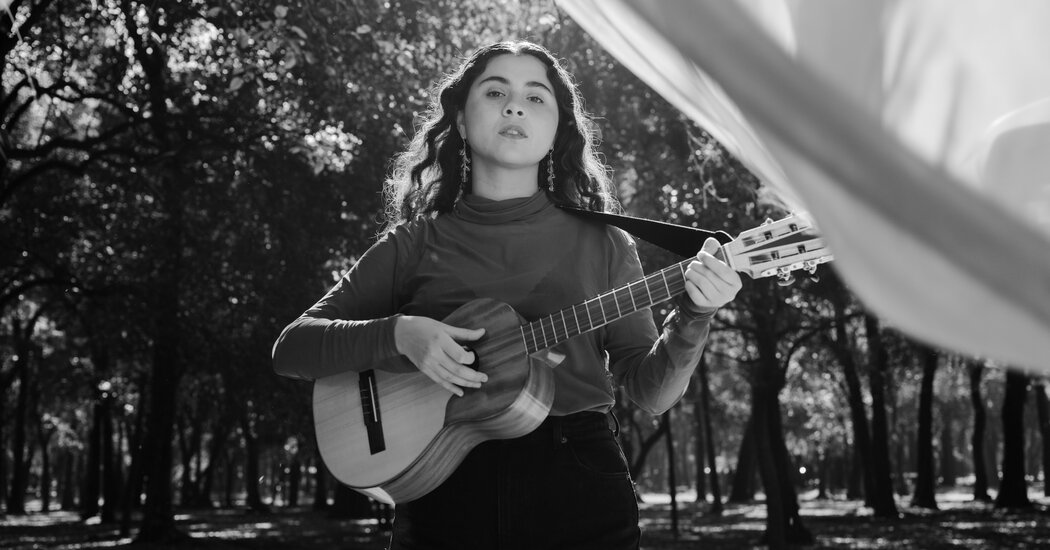
Recognizing that songs from that earlier era “don’t always offer good advice,” or even include abusive language, she said she wants her music to move people while sending different messages: “Messages that are much more open, much more feminist, much more egalitarian.”
“Marchita,” which translates to “withered,” is about Estrada’s first love, and the profound grief that accompanied its end. She recorded the album two years ago, and listening back to it now, she hears a sense of naïveté. “Only someone with that kind of innocence could write such solemn things,” she said. “It’s like a mourning of that first idea one has about love.”
Much like her everyday speech, Estrada’s lyrics unfurl with a poetic magnetism that blooms in Spanish. They often echo the romantic textures of the Nicaraguan poet Rubén Darío, or perhaps the Uruguayan poet and critic Idea Vilariño, both of whom Estrada devoured while writing the album. On “Te Guardo,” she sings, “I have two pending kisses/one for each cheek/and a crystal abyss/for each wound.”
Lines like those immediately drew in the pop-rock giant Julieta Venegas. “What she writes is closer to a poetic construction, in the sense that it’s something that can stand on its own,” Venegas said in a phone interview. “It’s not like it’s only accompanying the music.”
Venegas became aware of Estrada through the musician David Aguilar, and eventually caught a show of Estrada’s in Buenos Aires. “She has a very intense relationship with words, which I think is so brilliant for such a young songwriter,” Venegas said. “Her songs have elements with a lot of depth — a story of images.”
Gustavo Guerrero, the producer of “Marchita,” said that “it was a challenge not to take away the power and expression of Silvana’s art.” The songs, melodies and lyrics were so well-written that he ran the risk of “overproducing or over-polishing something that’s already done,” he explained in a phone call. Together, they sought to preserve the minimalist energy of her live performances, in which she commands the stage, accompanied only by her voice, her lyrics and her cuatro.
“I’ve been working on that for a long time now,” Estrada said. “How can I be strong, how can I be persuasive with the minimum? Don’t you think that’s something that can sometimes be very feminine?” she wondered. “I see my mother resolve everything with a little money, a few ingredients, a little bit of everything. That is very strong. Sometimes I think with music it’s the same.”




